Introduction & Analysis
This collection of open-source English-language news articles published over the past week highlights significant events and issues concerning Myanmar. They present a snapshot of the country's safety and security landscape.
Myanmar faces a critical safety and security situation, compounded by the devastating magnitude 7.7 earthquake on March 28 that killed over 3,700 people and injured thousands, causing widespread damage to homes and infrastructure and impacting millions, with urgent humanitarian needs including clean water, shelter, food, and medical assistance. Relief efforts are hindered by damaged roads, telecom disruptions, ongoing aftershocks, and heavy rainfall, and while organizations like IsraAID and China have provided support, the junta's response has been criticized, and aid reportedly hasn't reached all affected groups, such as political prisoners in damaged facilities. Despite the military regime extending a temporary ceasefire until April 30 for relief, fighting and junta airstrikes have reportedly intensified, killing dozens of civilians, including children, and targeting homes, schools, and monasteries, leading to significant displacement and hardship for IDPs facing aid shortages. Additional security threats include large-scale Asian crime syndicates operating scam centers from Myanmar that are expanding globally and generating billions, and concerns over a Czech firm's sale of phone-hacking software to the Myanmar police, potentially enabling surveillance, arbitrary detention, torture, and murder of activists and journalists. International engagement, including calls from ASEAN chair Malaysia for the junta to honor the ceasefire and allow humanitarian access, and China's role in monitoring a separate ceasefire in northern Myanmar, navigates a complex environment where some view engagement with the regime as potentially legitimizing its rule amidst ongoing atrocities. At the same time, long-term safety concerns exist regarding plans to build a nuclear power plant in this seismically active region.
ASEAN

MALAYSIAN PM INITIATIVE ON MYANMAR: Will Anwar Ibrahim make a difference in his aftermath earthquake management initiative of the country?
As the rotating ASEAN Chairman, Malaysian PM Anwar Ibrahim is actively engaging with the Myanmar crisis following the earthquake in late March, meeting separately with both the military council's SAC leader Gen. Min Aung Hlaing and the National Unity Government's (NUG) PM Mahn Win Khaing Thann to discuss humanitarian aid intervention. Ibrahim's initiative aims to facilitate urgent humanitarian access and a comprehensive stop to terrorism, emphasizing a principled and inclusive approach within the ASEAN framework, and he has also consulted with an informal advisory group including Thaksin Shinawatra. While this engagement, which treats both the SAC and NUG as stakeholders, is seen as a positive step, the effectiveness of ASEAN's efforts to achieve a humanitarian ceasefire and lasting peace will depend on the willingness of all parties and must also navigate the complex geopolitical landscape, particularly considering China's significant influence in Myanmar.
Census & Elections
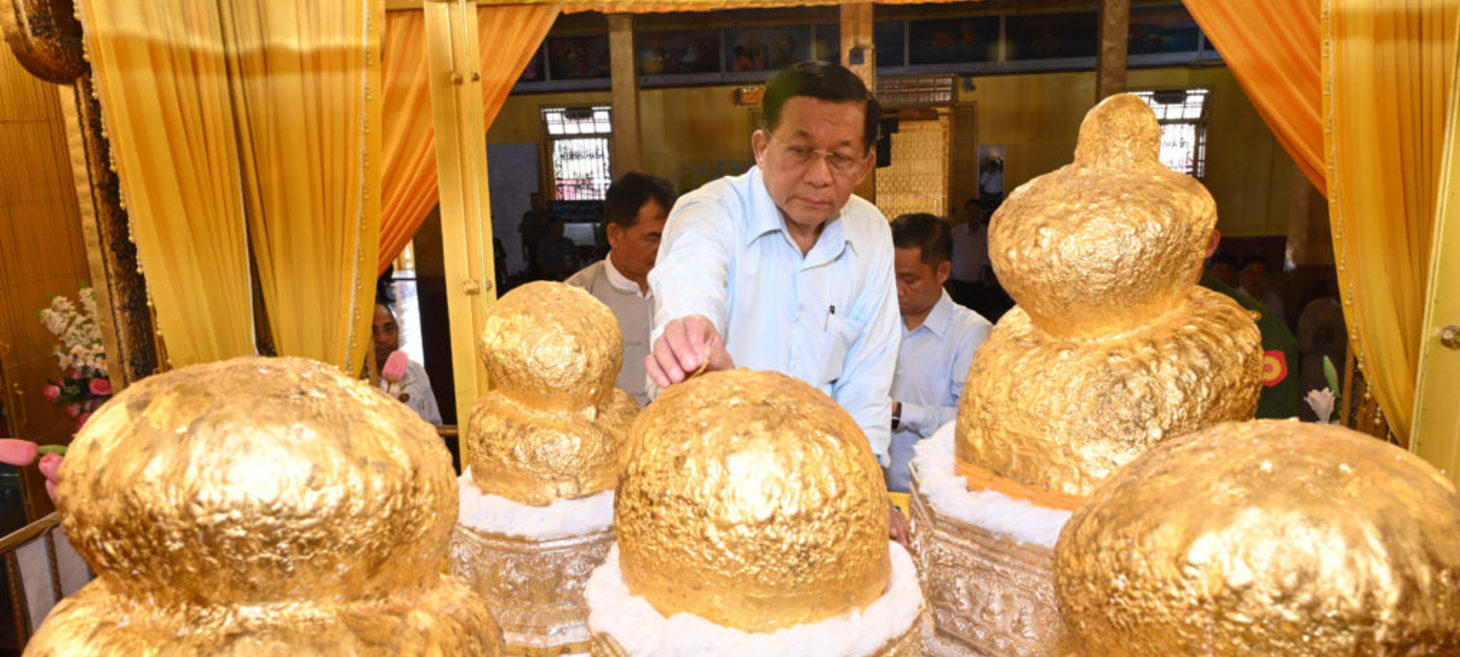
Myanmar Junta Boss Pushes Elections in Thingyan Message
Myanmar junta boss Min Aung Hlaing has reiterated his intention to hold elections starting in late December, urging cooperation despite widespread criticism that the regime should prioritize earthquake relief efforts. While over 50 political parties have registered, only the military's proxy party has declared readiness. These elections, planned under the 2008 Constitution that reserves 25% of parliamentary seats for the military, are viewed by many, including Western democracies and the National Unity Government, as a sham to legitimize the junta's rule. Despite calls for political solutions and a ceasefire, the regime has continued military actions, including airstrikes on civilian targets. While some countries like China and Russia support the elections, ASEAN, particularly Malaysia as the 2025 chair, has called for a halt to violence first, leading to renewed engagement between ASEAN and the junta following a devastating earthquake.
Conflict
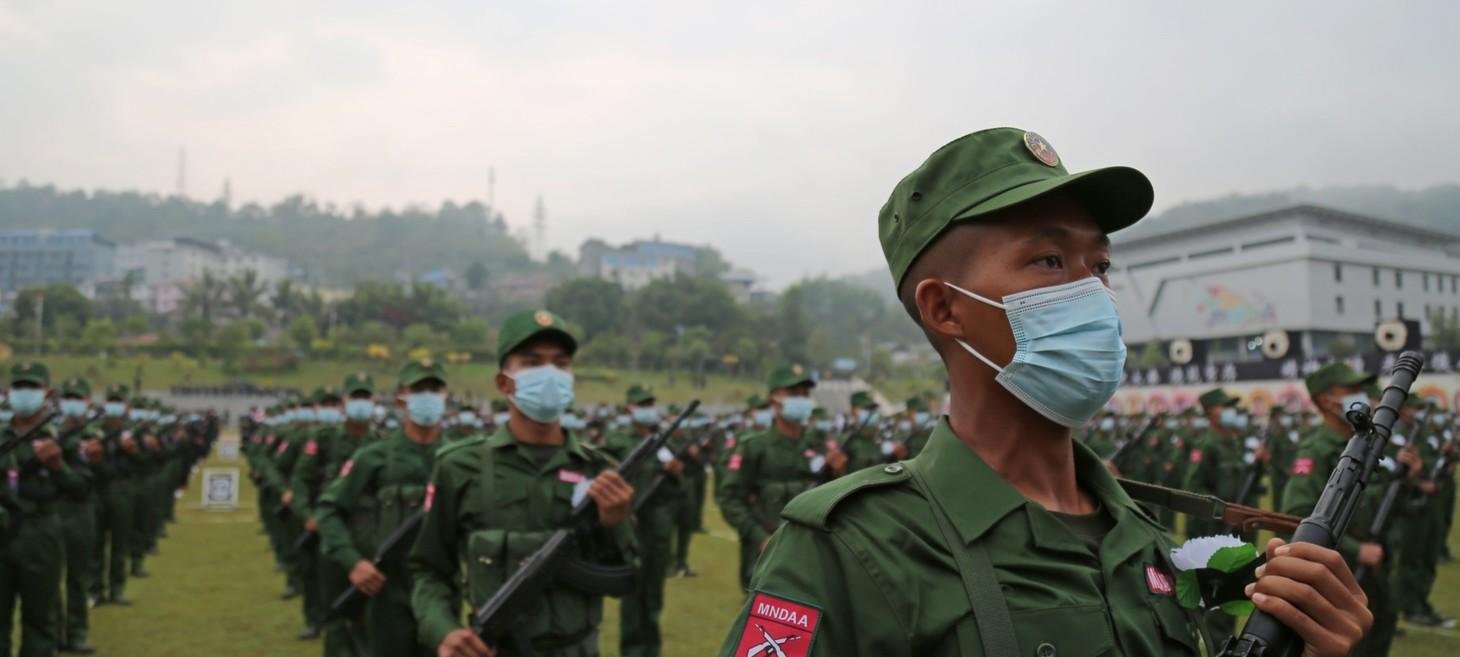
Junta-appointed officials move into Lashio after MNDAA withdrawal
Following the withdrawal of most of their forces from Lashio, the capital of northern Shan State, the Myanmar National Democratic Alliance Army (MNDAA), also known as the Kokang Army, saw junta-appointed officials and administrators return to the town on Friday. This move by the junta-appointed officials aims to fill the power vacuum created by the MNDAA's departure, which occurred after they agreed to withdraw from Lashio before the end of April under heavy pressure from China. Residents anticipate the reinstatement of the junta’s administrative system in Lashio starting around April 21.

Lawa Village Devastated: 100 Homes Burned, Civilians Detained Amid Heavy Fighting
Lawa village in Hpakant Township was devastated around April 15, 2025, when junta troops and the allied Warazup Militia Force launched airstrikes and set fire to approximately 100 homes and the morning market. This assault, which led to the detention of at least 10 civilians and the death of one, Nla Naw, followed a period of heavy fighting between the junta forces and the Kachin Independence Army (KIA) for control of the strategically important village along the Lido Road. The renewed clashes were triggered after the KIA briefly took control of the area following the expulsion of junta and militia troops from a local school and residential homes in late March, but subsequently withdrew after heavy airstrikes. As a result of the ongoing conflict, over 1,000 residents from Lawa and nearby villages have been displaced, and the village has reportedly been bombed by airstrikes at least 10 times in the past month.
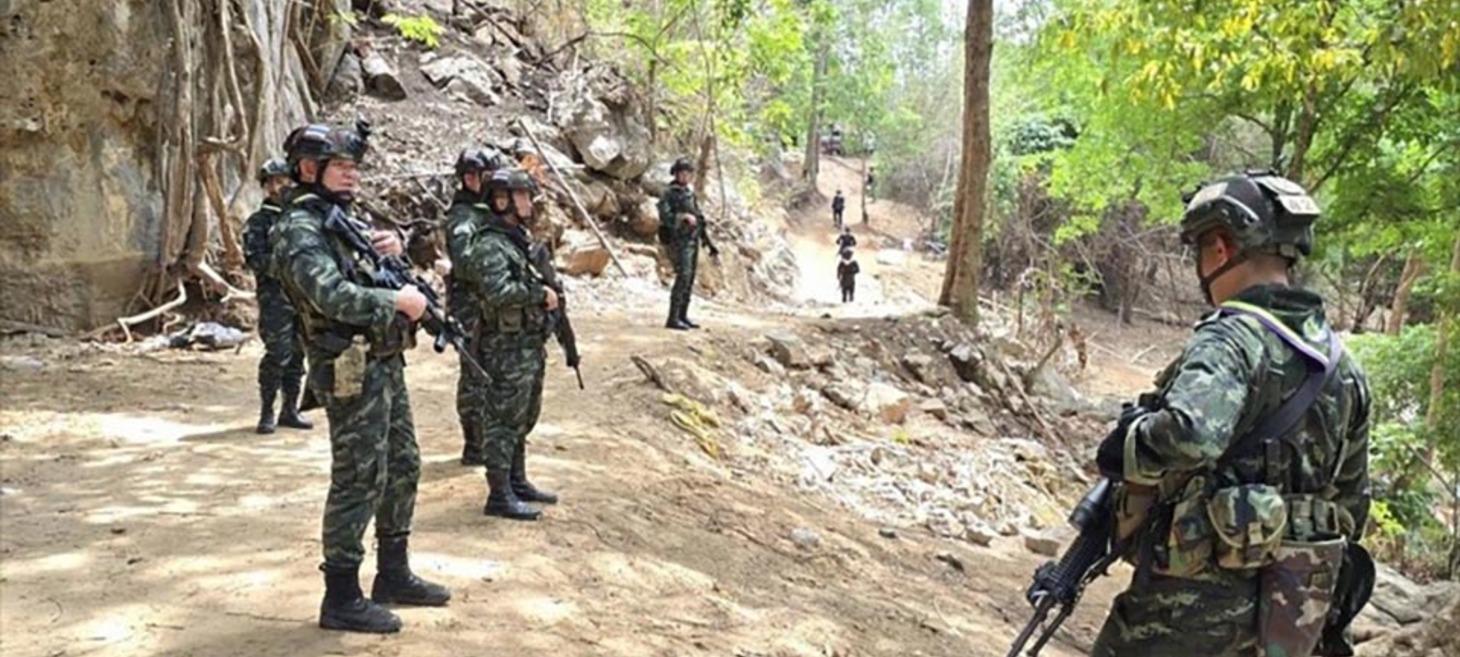
Thailand on high alert after fierce clashes between Myanmar army and Karen forces
Intense clashes between the Myanmar army and the Karen National Liberation Army (KNLA), occurring just 2 kilometers from the Thai border in Mae Ramad district, Tak province, have prompted Thailand to heighten security measures in the area. The fighting, which included heavy gunfire and visible smoke, caused Myanmar civilians to flee across the Moei River into Thailand seeking refuge. Thai authorities, including police, military, and local officials, have mobilized to provide security and temporary shelter at a local Buddhist temple for the displaced individuals and are maintaining a 24-hour watch along the border to protect national sovereignty and ensure the safety of both locals and refugees.
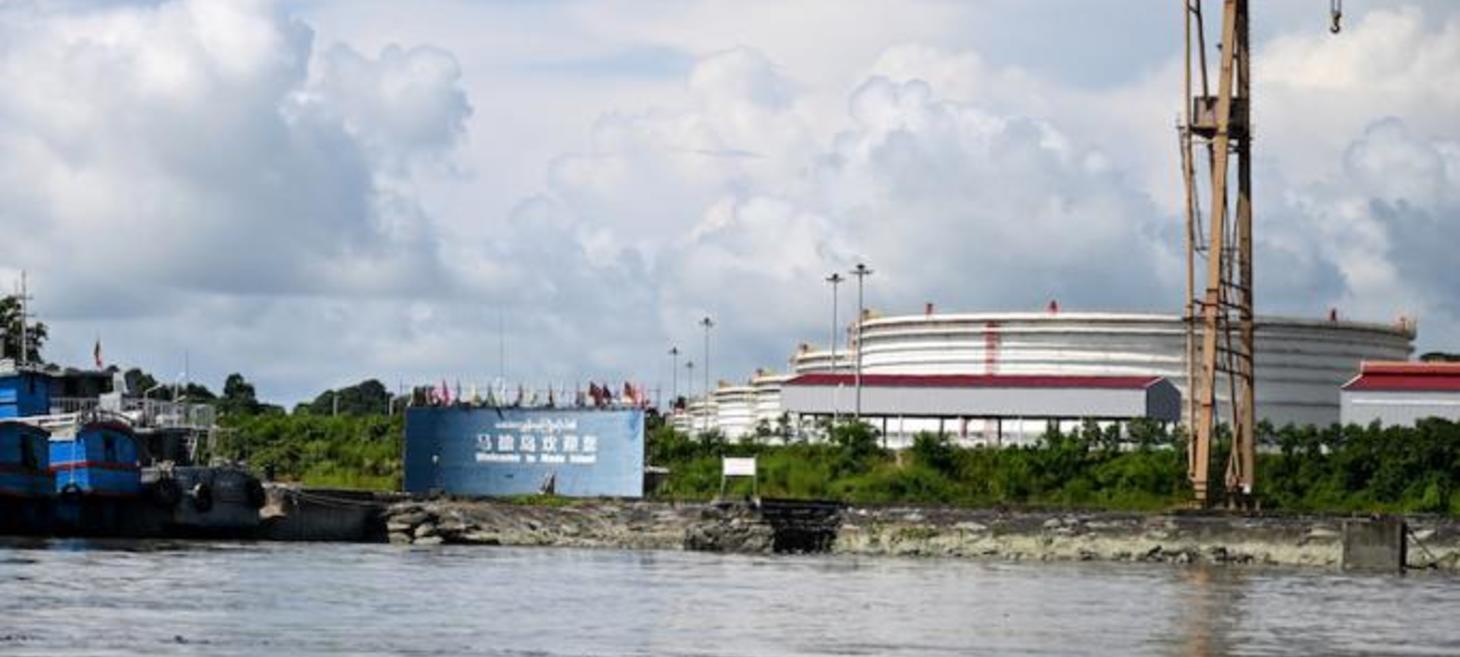
Fighting in Myanmar’s Kyaukphyu threatens China’s Indian Ocean investments
Renewed conflict in Myanmar's Kyaukphyu Township, specifically the Arakan Army's (AA) advance against the military junta, is threatening billions in Chinese investment and strategic access to the Indian Ocean. The AA controls over 90% of the areas surrounding Kyaukphyu, a crucial hub for China's Belt and Road Initiative featuring a deep-sea port and natural gas terminal that generate substantial annual export revenue and foreign exchange for the junta. Although intense fighting has caused displacement and destruction, oil and gas exports to China have reportedly continued. China has deployed security personnel to protect its vital assets, while the AA's political wing has expressed willingness to cooperate with foreign investors and believes it holds leverage for future projects and revenue-sharing. As the junta weakens and the AA gains control, foreign stakeholders like China, South Korea, and India may need to shift engagement towards Arakanese authorities for future investments, making Kyaukphyu a critical flashpoint of geopolitical, resource control, and power dynamics.
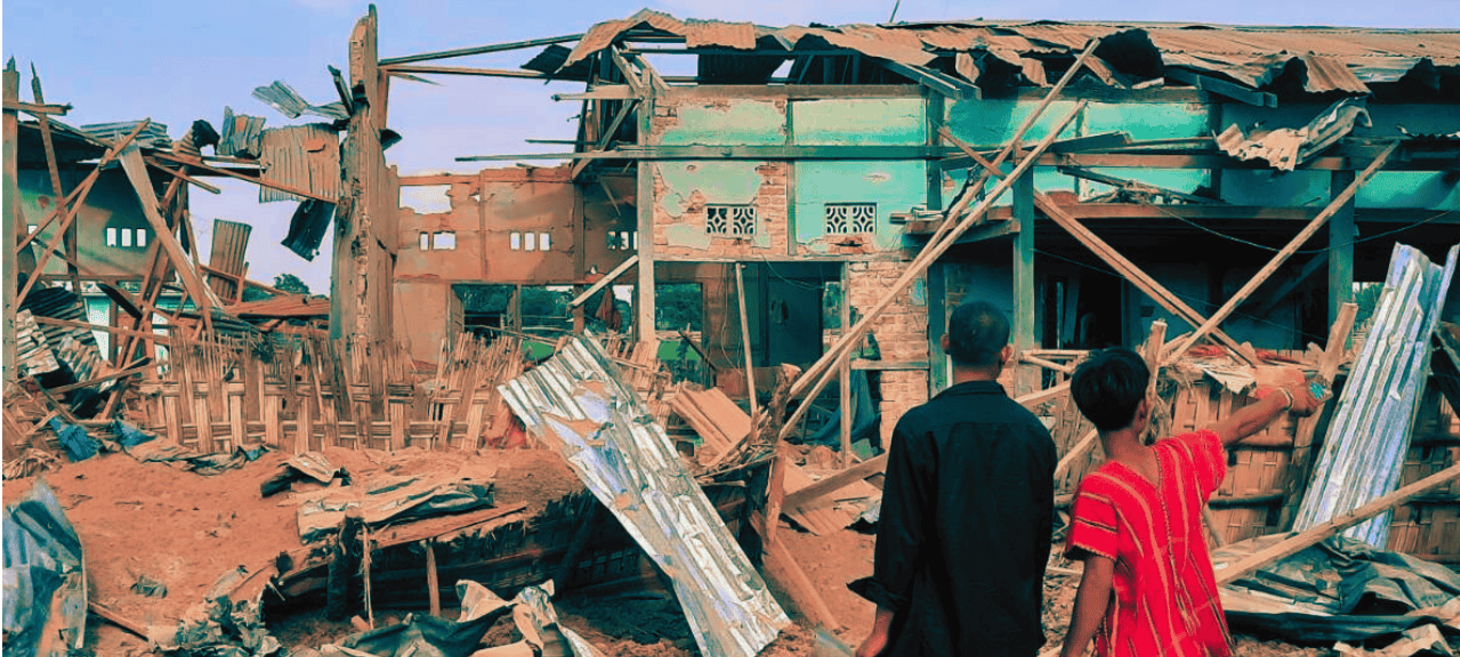
Junta airstrikes kill over 40 civilians across Myanmar in two days, despite ceasefire
According to a Myanmar Now investigation, airstrikes conducted by Myanmar's military junta from April 19 to 20, 2025, killed more than 40 civilians and wounded over 60, including children and pregnant women, across four states and regions. This bombing campaign occurred despite the junta having declared a ceasefire after a powerful earthquake on March 28. Sources indicate the airstrikes have actually intensified since the ceasefire, increasing the death toll nationwide. Specific reports from local activists and People’s Defense Forces detail at least 13 deaths in Sagaing Region, 24 in Mandalay, two in Thanintharyi Region, and three in Mon State. The military reportedly bombed schools, homes, and monasteries, with Kunseik village in Shwebo Township, Sagaing, being damaged by a strike on the evening of April 20, 2025.
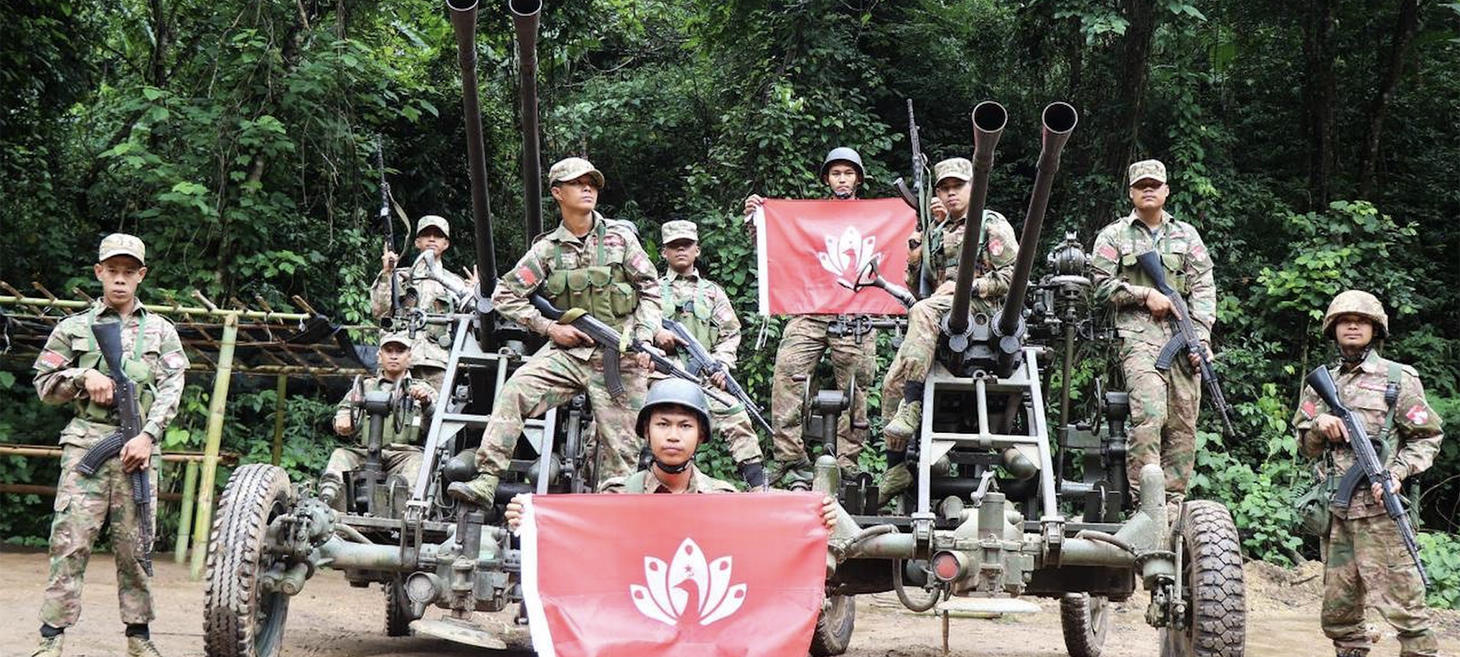
Central Myanmar’s People’s Defense Forces Stake a Growing Claim
Following the 2021 military coup in Myanmar, various pro-democracy resistance forces, such as the People's Defense Forces (PDFs), emerged across the country. Initially lacking formal military training and relying primarily on guerrilla tactics, these groups were widely underestimated. Operating under the command of the parallel National Unity Government (NUG), PDFs have significantly expanded their military capabilities beyond guerrilla tactics, now conducting ambushes, offensives on bases, and town captures, often benefiting from training by better-organized ethnic rebels. PDFs have carried out successful ambushes, inflicted heavy casualties on junta troops, and seized substantial amounts of weapons. They have also participated in the capture of hundreds of junta bases and have notably seized control of eight towns in Sagaing and Mandalay regions since late 2023, although they had to abandon Kawlin town in 2024. With improving combat capabilities and materiel, including weapons seized from junta bases, PDFs are expanding their strongholds and operating on multiple fronts, demonstrating the resources for month-long offensives and in some areas confining junta forces to towns. Their rapid progress in becoming a significant force, often in coordination with ethnic armies, has been remarkably quick compared to established groups, with their role in Myanmar's political and military landscape growing rapidly due to improved operational effectiveness.
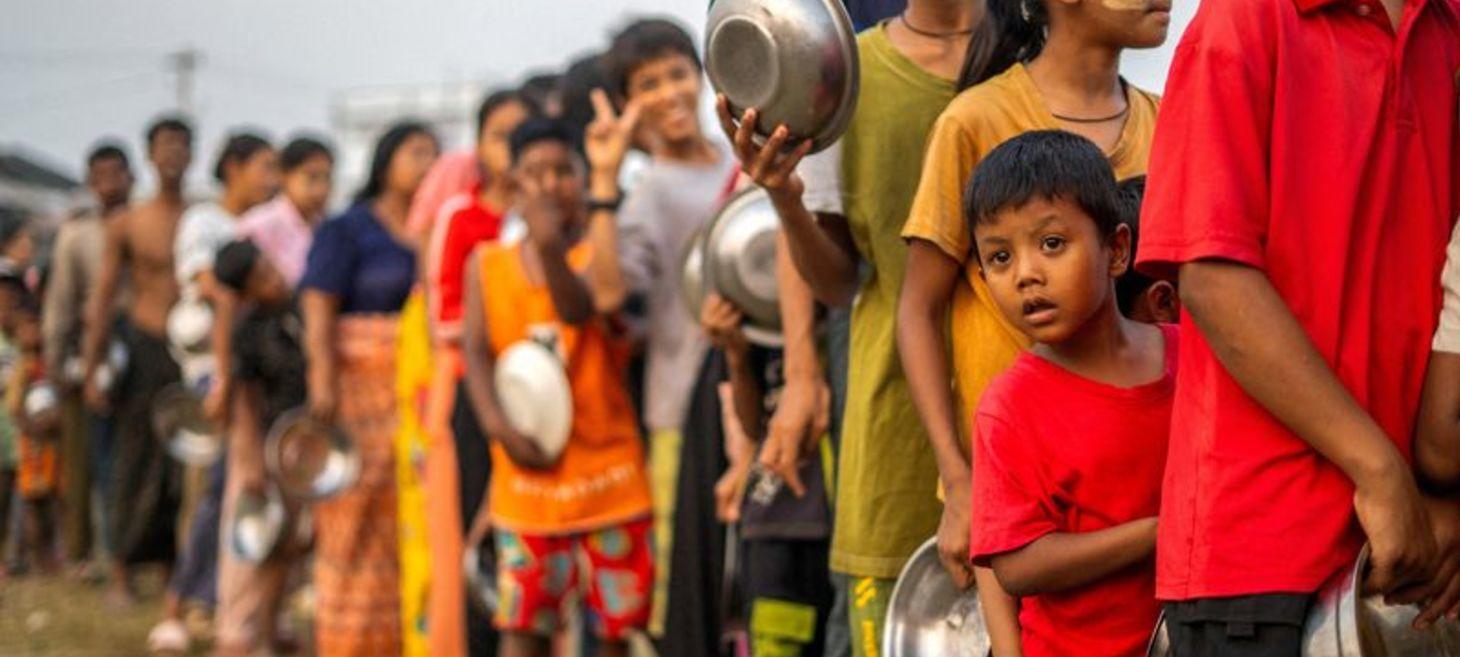
Myanmar junta extends temporary ceasefire to April 30 to support earthquake relief, state media says
Based on the sources, the Myanmar ruling military has extended a temporary ceasefire in its conflict with rebels to April 30. This decision was made to support relief and rebuilding efforts following a devastating earthquake last month. State media reported this extension on Tuesday, April 22, 2025.
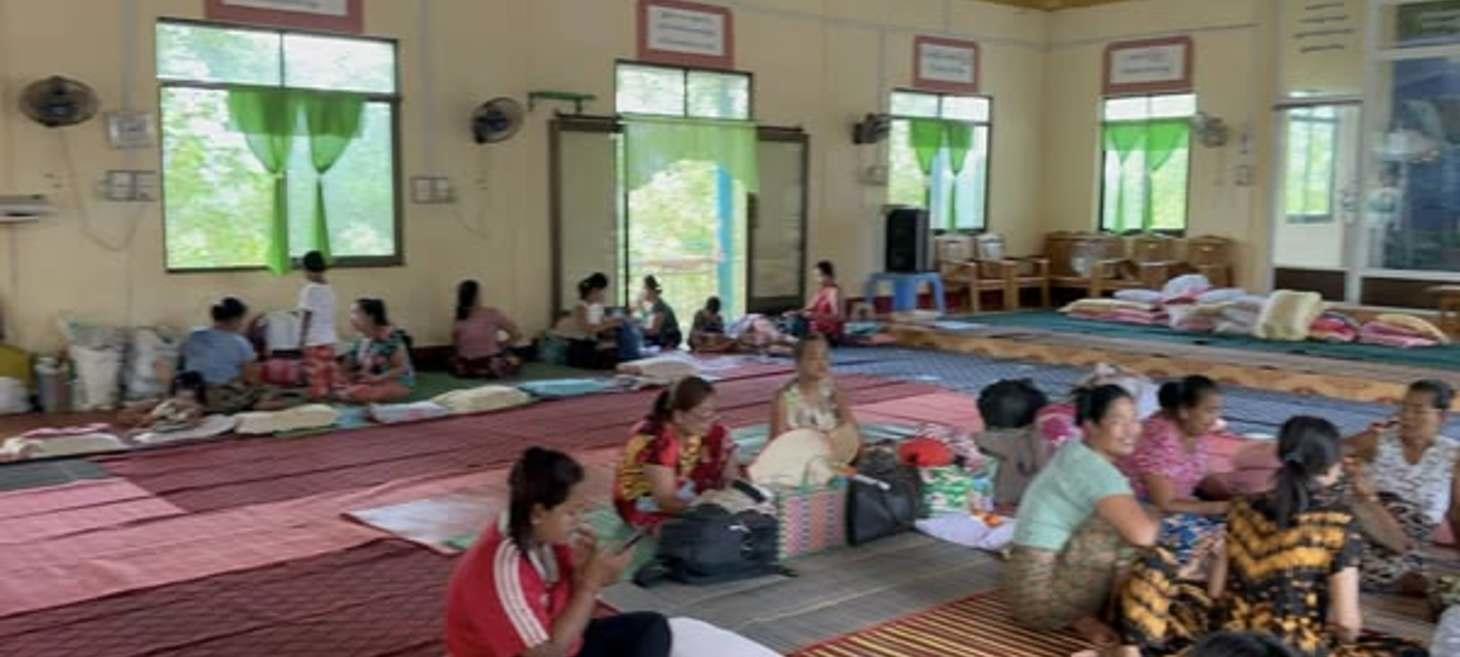
IDPs Flee from Kawkareik Township to Mawlamyine - Burma News International
Thousands of residents from Kawkareik Township in Karen State are fleeing due to escalating violence between a Karen National Liberation Army (KNLA)-led coalition and the junta, seeking refuge in safer areas including Mawlamyine City in neighboring Mon State. Since April 14, 2025, daily heavy fighting, including junta airstrikes, artillery shelling, and drone strikes, has been ongoing in northern Kawkareik Township and along Asia Highway 1. These attacks have forced thousands from villages like Kanni, Thayettaw, and Yaepu to leave their homes. Many of those arriving in Mawlamyine are staying with relatives or in monasteries, and there is an urgent need for food and medicine. Aid organizations are providing assistance, but the growing number of displaced people is straining resources, and the need is expected to increase as fighting intensifies. The Karen National Union (KNU) has advised people to avoid non-essential travel in the township due to the ongoing conflict.
Crime & Narcotics
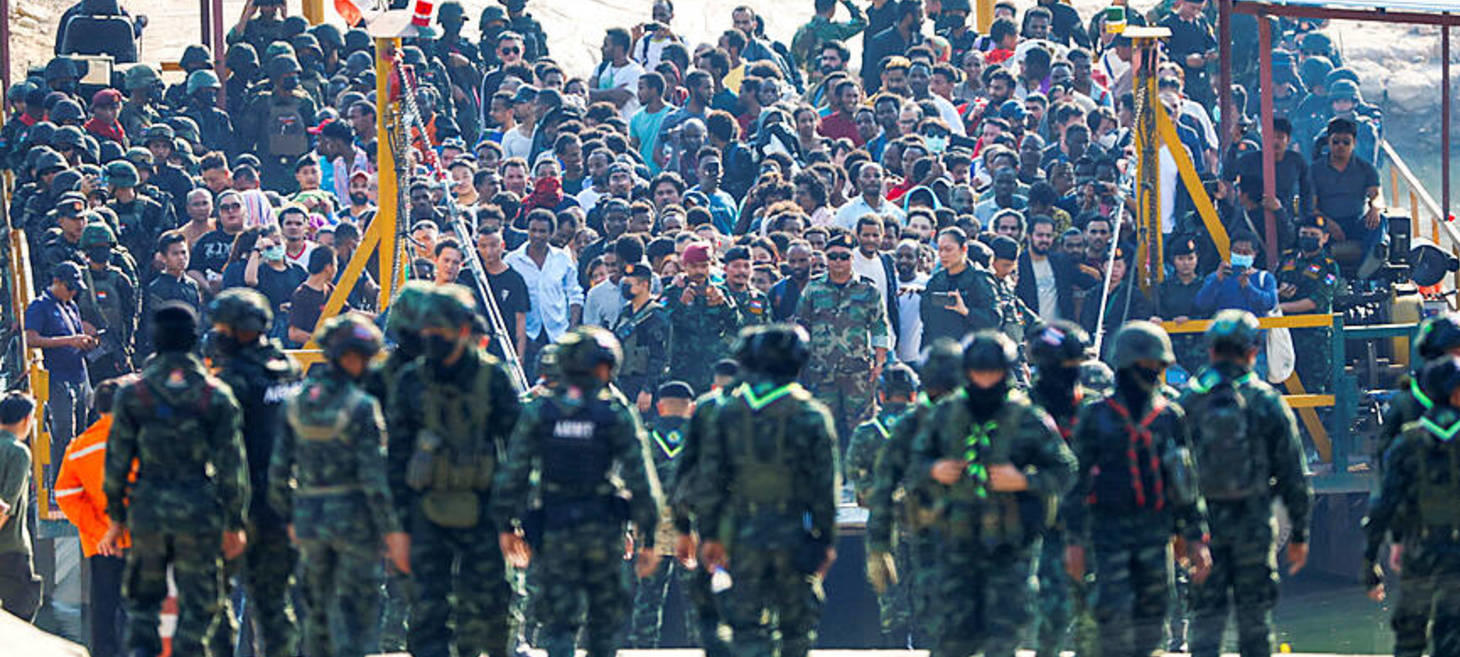
Cyberscams spreading globally: UN
Asian crime syndicates specializing in multibillion-dollar cyberscams are expanding their operations globally, moving beyond Southeast Asia to regions like South America and Africa as authorities in countries such as China, Thailand, and Myanmar intensify crackdowns. The UN Office on Drugs and Crime (UNODC) reports that these sophisticated networks, which often involve trafficked workers forced to scam victims worldwide from sprawling compounds, have become a highly scalable industry generating tens of billions in annual profits. Despite raids, the syndicates adapt by shifting operations to more remote or underprepared locations within Southeast Asia and exploiting jurisdictions with weak governance, seeking partnerships with groups like South American drug cartels for money laundering and establishing new sites in Africa and Eastern Europe. The UNODC warns that the international community is at a "critical inflection point," stating that failing to address this issue would have unprecedented global consequences.
Economy

Myanmar resumes issuance of tourist visas
Myanmar resumed issuing tourist visas on April 22, 2025, following a temporary suspension that began around April 3. The suspension was necessitated by a powerful 7.7-magnitude earthquake on March 28, 2025, which caused significant disruption, including to the government's digital infrastructures related to immigration. Business visas continued to be processed during this time. Authorities have confirmed that the server issues caused by the earthquake have been resolved, and the tourist e-Visa service is officially back online as of April 22, 2025. The tourist e-Visa is available to citizens from 100 countries, permits a 28-day stay for a single entry, costs 50 US$, requires a passport valid for at least six months and other specific documents, and typically takes a minimum of three business days to process. Travelers with an e-Visa can enter the country through Yangon, Mandalay, or Nay Pyi Taw International Airports, or the Kawthaung land border crossing with Thailand. This resumption is considered a welcome development for Myanmar's tourism industry, signaling resilience and a readiness to welcome visitors.
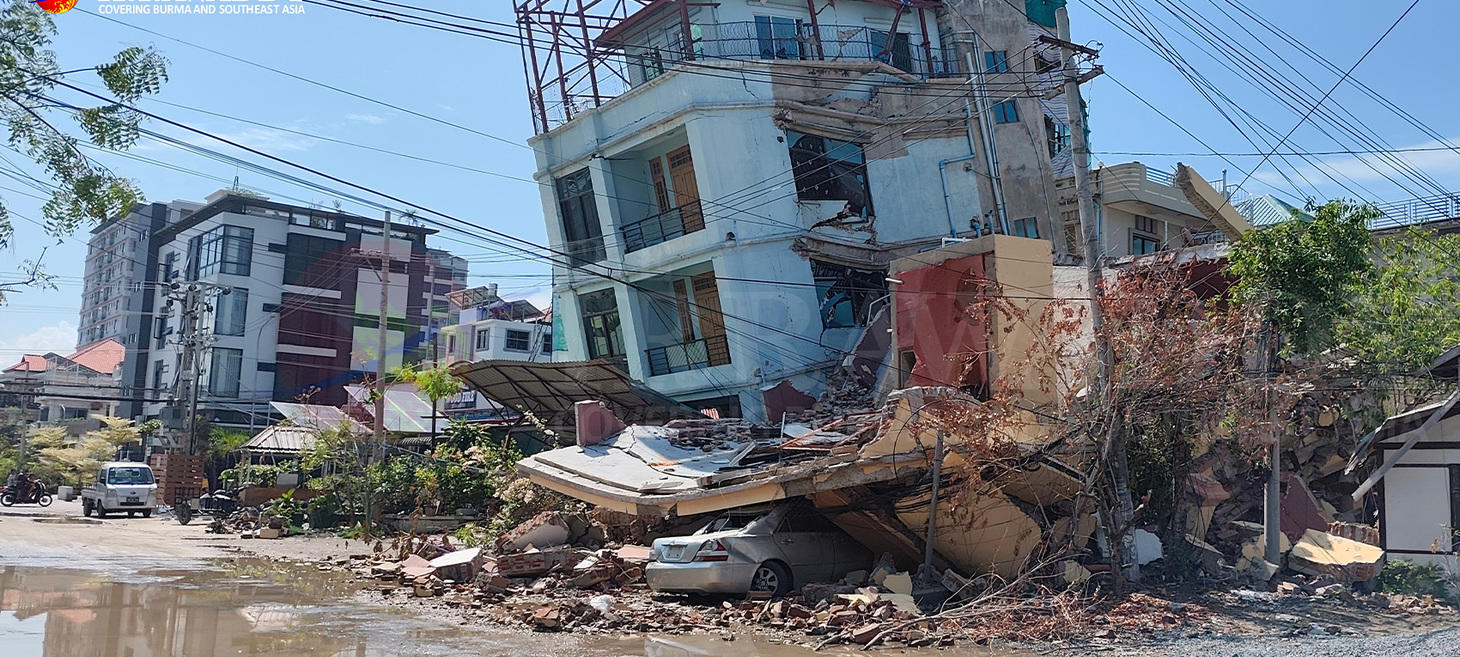
Pay Your Electricity Bills, Regime Tells Mandalay Earthquake Victims
Following the March 28 earthquake in Mandalay, the regime has informed residents whose homes were damaged that they still need to pay their electricity bills, with power having been restored about a week after the quake. Notices were distributed requiring households with undamaged meters to pay their March bill as usual, while homes that suffered damage will have their March and April bills collected together in May, and residents must report if their meters are too damaged to be read. Many earthquake victims are angry about this requirement, especially as some homes are uninhabitable, and some residents were billed amounts higher than their usual bills, leading some people to refuse payment. This occurs in Mandalay, where many residents have historically refused to make payments to the junta, including utility bills, as part of the civil disobedience movement after the 2021 coup, a situation the regime has previously addressed with power cuts and door-to-door collection efforts.
Ethnic Issues
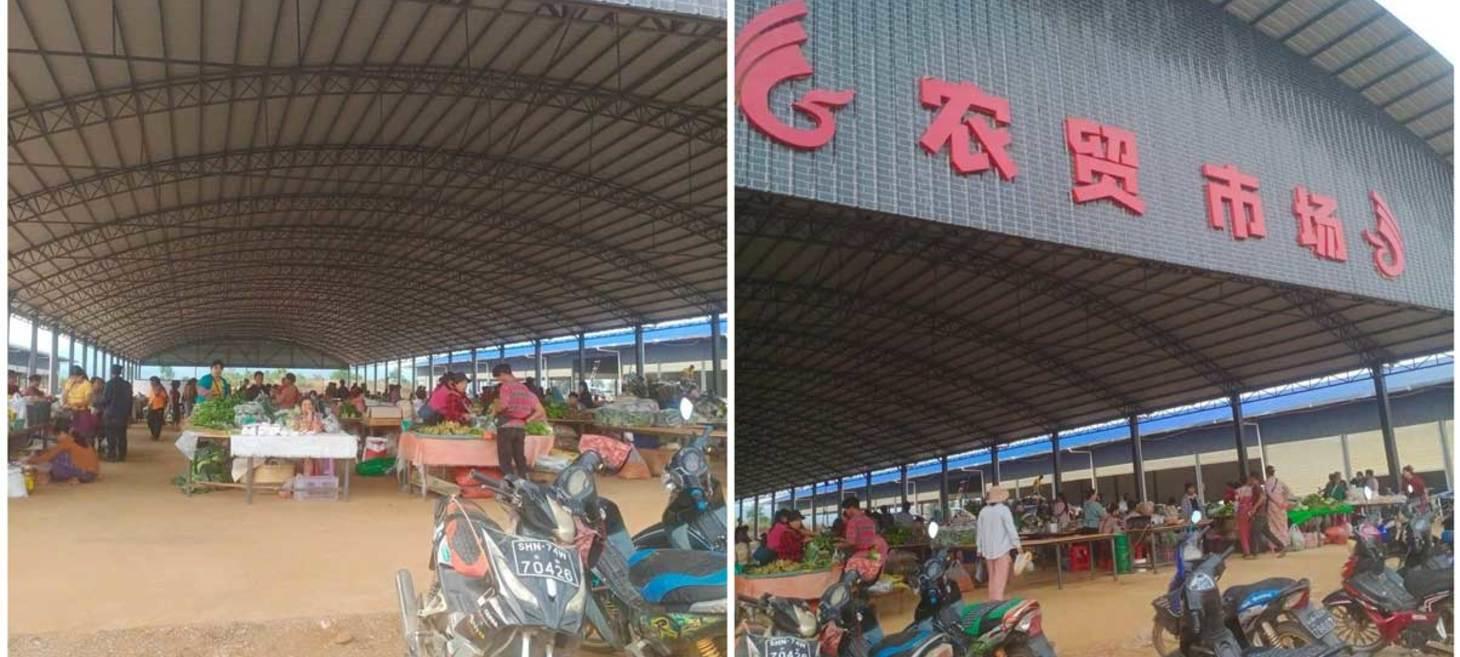
MNDAA Forces Eviction of Hsenwi Vendors Amid Outrage Over Market Relocation
The Myanmar National Democratic Alliance Army (MNDAA) is forcing vendors in Hsenwi Township, Northern Shan State, to relocate from their original market, which was damaged by a military airstrike in July 2024, to a newly constructed market in Panglawt village. This forced eviction on April 15, 2025, has sparked outrage among vendors who have traded at the original Hsenwi Township Market for generations. The vendors are protesting the lack of consultation, the steep fees associated with the new market stalls, and the suspicion that the vacated land may be used for a casino. Facing increased living costs and scarce jobs, the vendors are pleading for a reduction or suspension of the new market fees, citing the economic hardship in the region and the MNDAA's heavy-handed approach.
Foreign Affairs
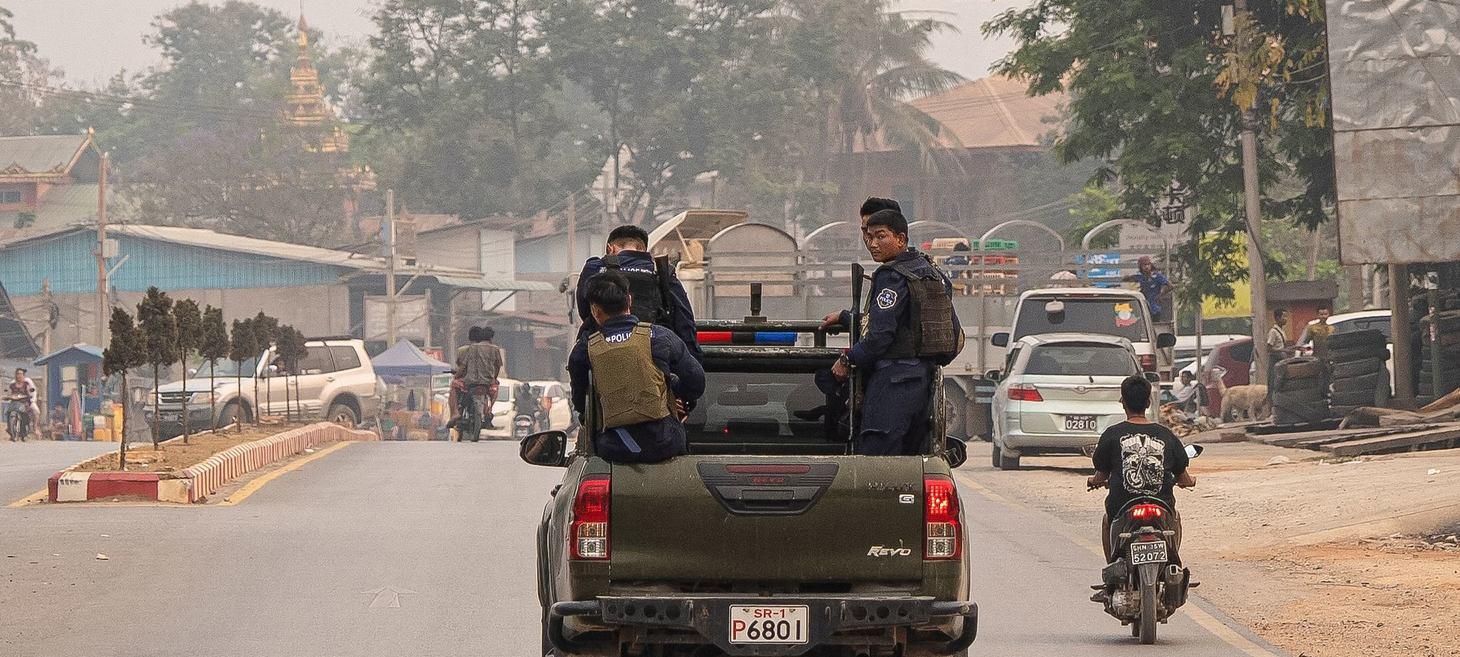
Chinese monitors deployed to strategic Lashio as junta slowly retakes town
In a significant development in Myanmar's civil war, the strategic town of Lashio, which was captured by the MNDAA last year, has now been handed over to the junta through a process directly orchestrated by China. A Chinese delegation, led by Special Envoy Deng Xijun, arrived in Lashio to facilitate this handover and oversee the ceasefire negotiations between the junta and the MNDAA. Residents reported ongoing negotiations and the presence of a convoy bearing Chinese flags and a sign reading “Ceasefire Monitoring Group,” confirming China’s direct supervisory role. Following the MNDAA withdrawal, junta-appointed officials have moved into Lashio.
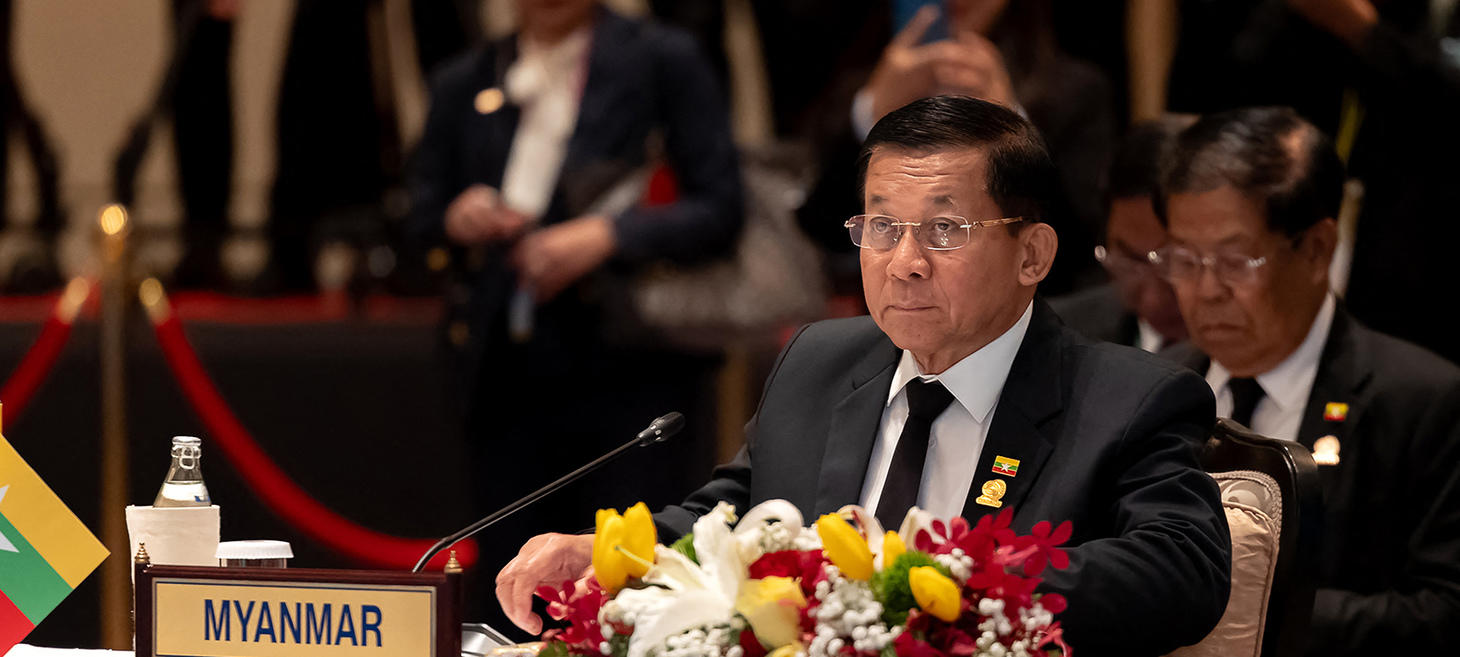
Appeasing the Myanmar Junta in the Face of Atrocity
Regional actors, including ASEAN and Myanmar's neighbors like China, Thailand, and India, have shifted their approach from passive observation to active engagement with the Myanmar junta, driven by a preference for a centralized authoritarian regime and entrenched economic interests. This engagement, characterized by diplomatic efforts, limited economic assistance, and pressure on revolutionary forces, aims to prop up the collapsing junta and facilitate sham elections to create a façade of legitimacy. The recent earthquake has provided a "humanitarian narrative" as a convenient excuse for this re-engagement, allowing the junta to gain international acceptance and resources, which it manipulates while continuing its oppression. Despite this regional "appeasement" that undermines their democratic uprising, the people of Myanmar remain resolute in their fight against military rule, understanding that meaningful external support is unlikely and their liberation must come from within.
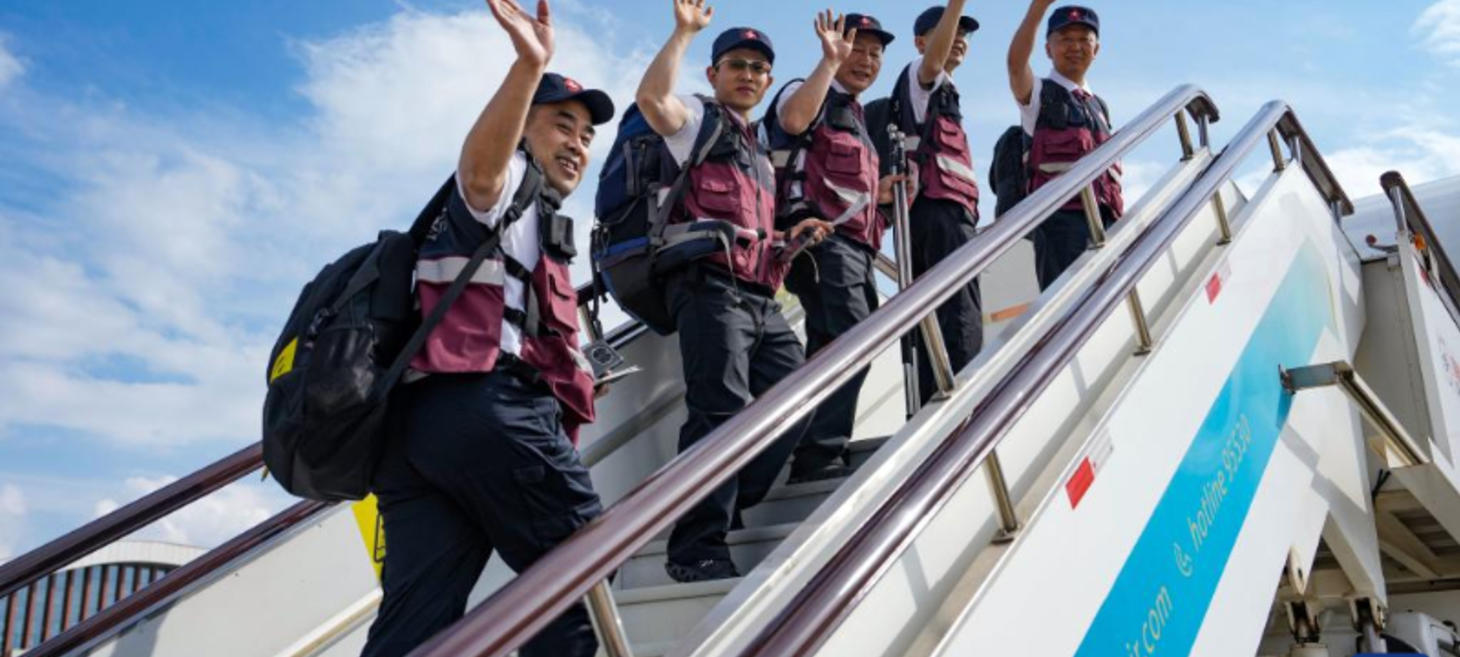
China’s swift, efficient response has great impact on relief efforts in Myanmar earthquake: ICRC official
Following a 7.9 magnitude earthquake that struck Myanmar on March 28, 2025, causing significant casualties and infrastructure damage, a dire situation unfolded with urgent needs for clean water, shelter, food, and medical treatment. China responded swiftly and efficiently by sending a 50-member public health team and other rescue and medical assistance, including the efforts of the Red Cross Society of China, which the ICRC noted had a great impact on the initial relief efforts. The ICRC, working with the Myanmar Red Cross Society and other partners, has been providing life-saving support, including health kits and body bags, while facing challenges such as damaged infrastructure and telecom network disruptions. The international community, including China and the ICRC, is called upon to provide sustained aid for long-term reconstruction and to foster greater collaboration in disaster response.
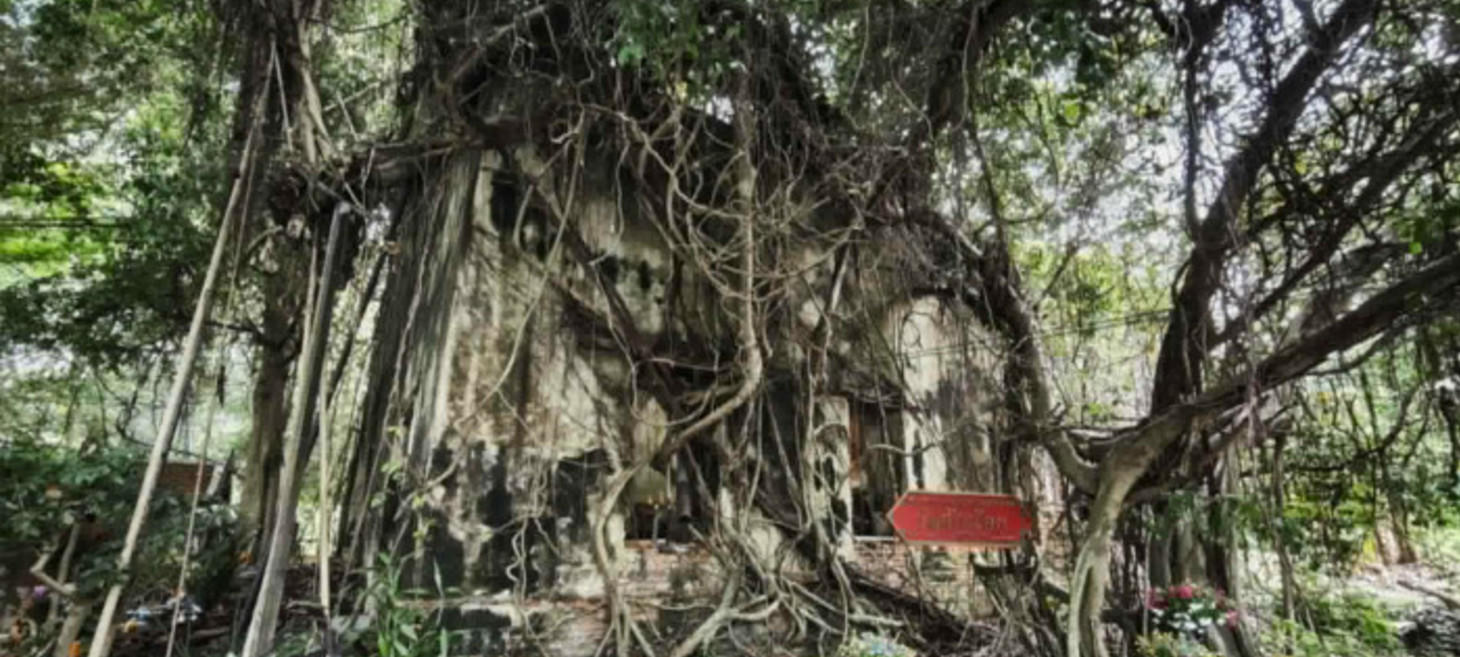
China sends team to Myanmar to monitor ceasefire
China has recently dispatched a team to Myanmar to monitor a ceasefire that it brokered between the country's ruling military and the Myanmar National Democratic Alliance Army (MNDAA), a rebel group mainly composed of ethnic Chinese. Signed in January following talks in Kunming, China, this agreement occurs in the context of Myanmar's turmoil since the 2021 military coup and subsequent rebel offensives by groups including the MNDAA and the Three Brotherhood Alliance, which have gained territory near the border with China. China's foreign ministry spokesperson stated that the parties appreciate China's "constructive role in safeguarding peace and stability in northern Myanmar" and that China will continue to push forward peace talks. This ceasefire is separate from broader efforts by ASEAN.
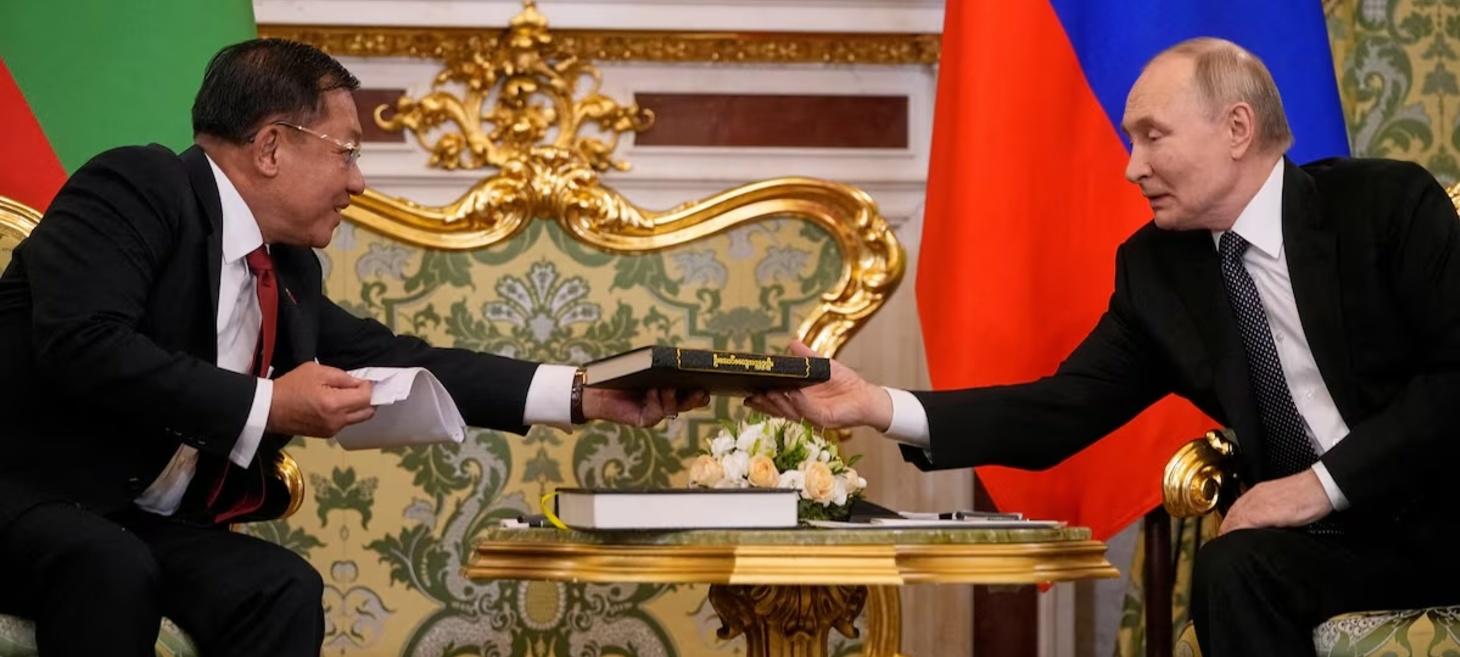
Russia's Rosatom says will proceed with Myanmar nuclear plant despite quake
Despite a devastating 7.7 magnitude earthquake in March and an ongoing civil war, Russia's state-owned firm Rosatom plans to continue building a small-scale nuclear facility (SMR) in Myanmar with an initial 110 MW capacity using two 55 MW reactors. Rosatom stated the quake has not affected their plans, citing high safety standards including seismic resistance. This decision, not previously reported, proceeds as Myanmar's economy is in tatters due to the conflict, with the country currently evaluating financing options. Neighbouring Thailand assesses potential locations including Naypyitaw, Bago, and Dawei, noting Myanmar's high seismic activity. While the technology is not seen as a complication, experts question the Myanmar government's continuous commitment and the project's economic sense given the high cost for the cash-strapped administration.
General News
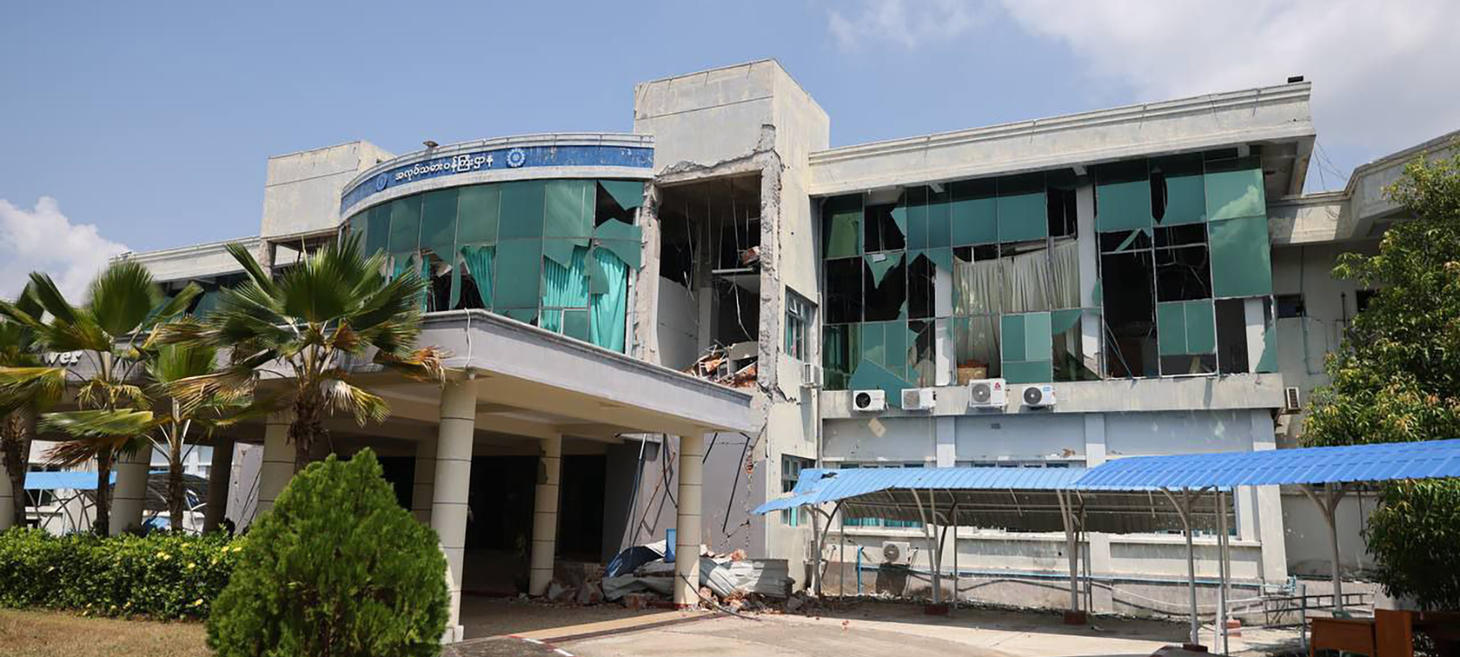
Myanmar Junta Plans ‘Small, Modular Buildings’ as Naypyitaw’s Grand Vision Shatters
The March 28 earthquake caused extensive damage in Myanmar's administrative capital, Naypyitaw, wrecking government buildings, staff apartments, and infrastructure, including numerous ministries. The destruction was particularly severe for staff buildings, with hundreds collapsing or being severely damaged, leaving many unfit for habitation and leading to heavy fatalities among government employees and their families. Consequently, many government offices are now operating from tents or planning temporary relocation. In response, junta boss Min Aung Hlaing announced plans to redesign Naypyitaw and reconstruct buildings, proposing measures like using smaller, modular structures and rebuilding staff housing to withstand magnitude 8 earthquakes. Despite ordering a review of construction quality standards and criticisms regarding the original construction's planning, no one has been held accountable for the widespread destruction, and the extent of the damage raises questions about the city's full restoration and future development plans.
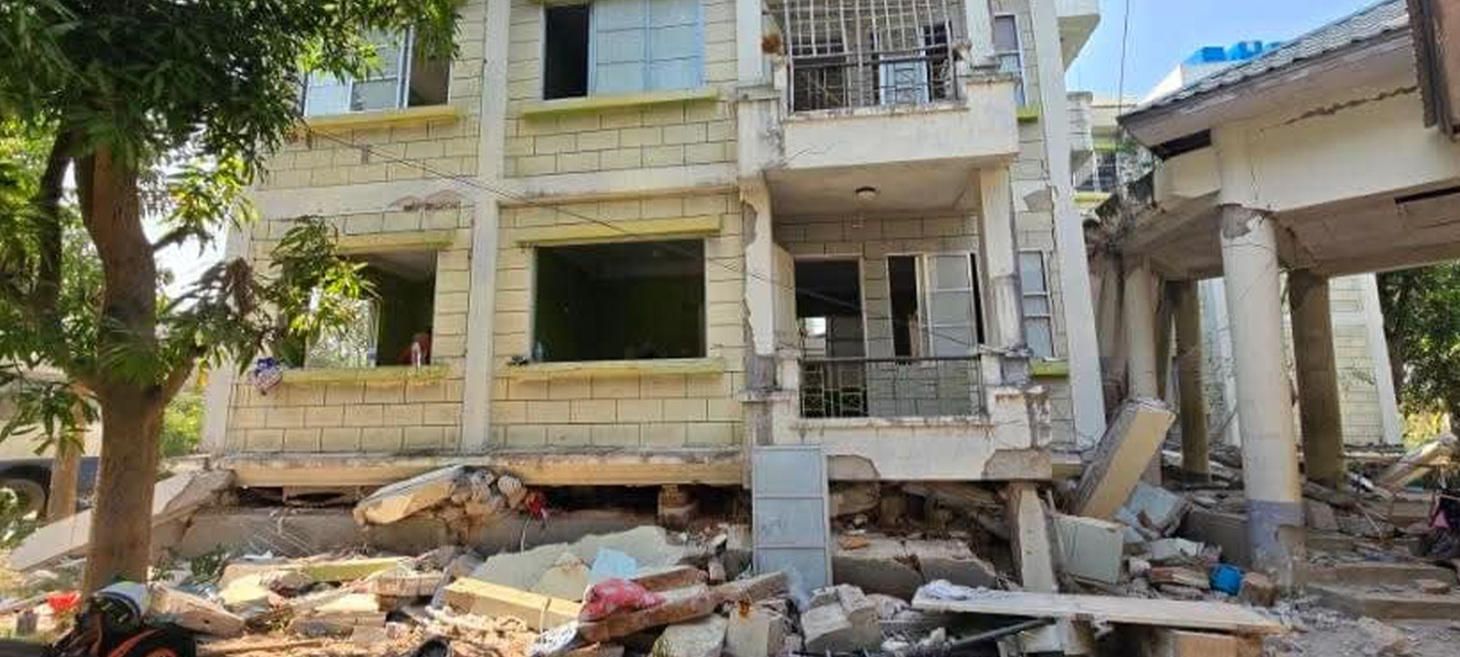
Myanmar Regime Leak Reveals Naypyitaw Housing Decimated by Quake
A preliminary assessment revealed that the March 28th earthquake caused massive damage to staff housing in Naypyitaw, with over one-third of 1,556 buildings in one zone destroyed or uninhabitable. The quake, which has resulted in over 3,700 deaths and 5,000 injuries across Naypyitaw, Sagaing, and Mandalay, also heavily damaged key government structures like the Presidential Residence and Parliament. While the junta has reported 511 fatalities in Naypyitaw as of April 3rd, residents estimate a much higher number of impacted buildings and casualties. Despite the damage and the Thingyan New Year holiday, the regime is pressuring officials to return to work, even if it means operating from tents and temporary offices, and is reportedly planning to relocate some ministries to Yangon. Civilians and government employees displaced by the quake are sheltering in less damaged areas or have relocated to nearby towns and cities, facing issues like power outages and shortages.
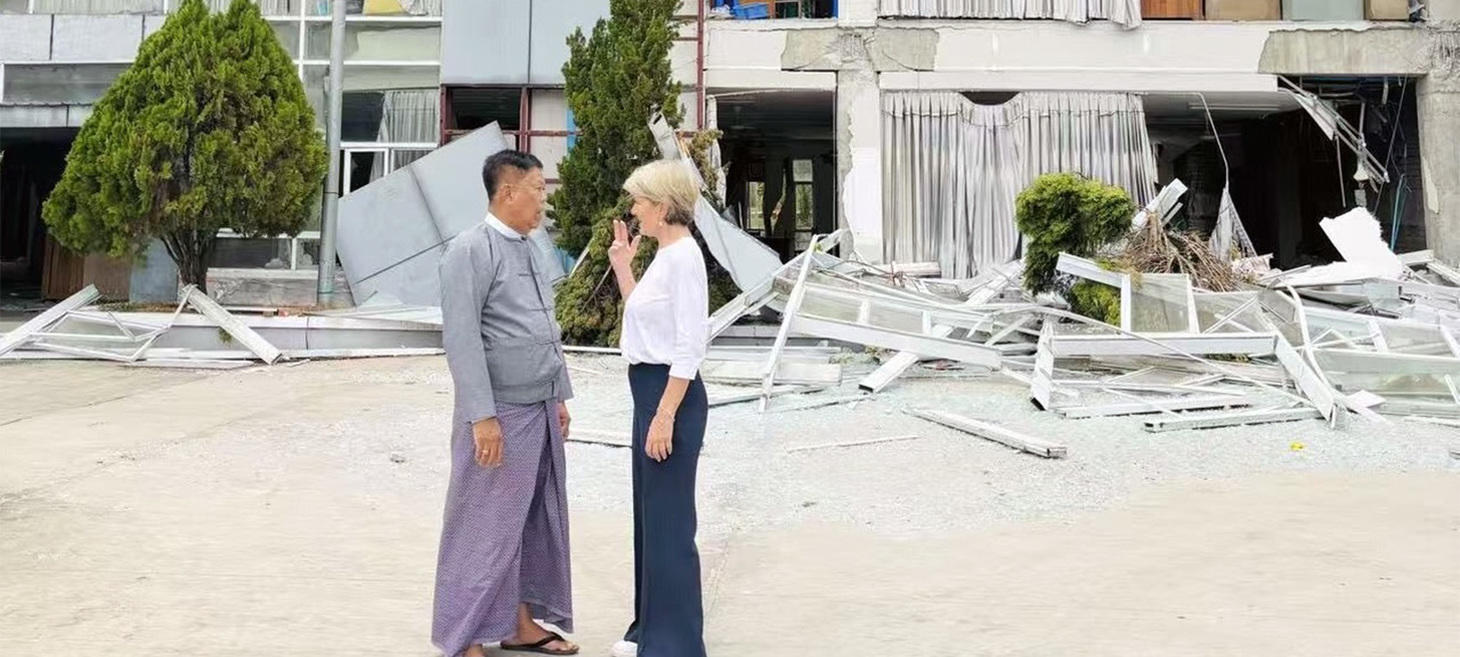
Myanmar Junta Ministries Plan Yangon Relocation After Quake
A powerful 7.7 magnitude earthquake struck Naypyitaw on March 28, 2025, causing widespread destruction to government buildings and staff apartments, with reports indicating that around 80 percent were wrecked. This devastation has led some Myanmar junta ministries, including foreign affairs, hotels and tourism, immigration and population, and commerce, along with the Central Bank, to reportedly plan a temporary relocation to Yangon. The earthquake resulted in an unknown number of regime staff deaths and damaged crucial infrastructure such as the presidential residence and parliament. Junta chief Min Aung Hlaing has called for reconstruction efforts, while many businesses face operational difficulties in Naypyitaw and Mandalay. Temporary relief camps have been established, and families of junta employees have been displaced. Overall, the earthquake caused significant damage to over 5,400 government buildings and 52,000 homes across Naypyitaw, Mandalay, and Sagaing, and tragically resulted in 3,725 deaths.
Humanitarian
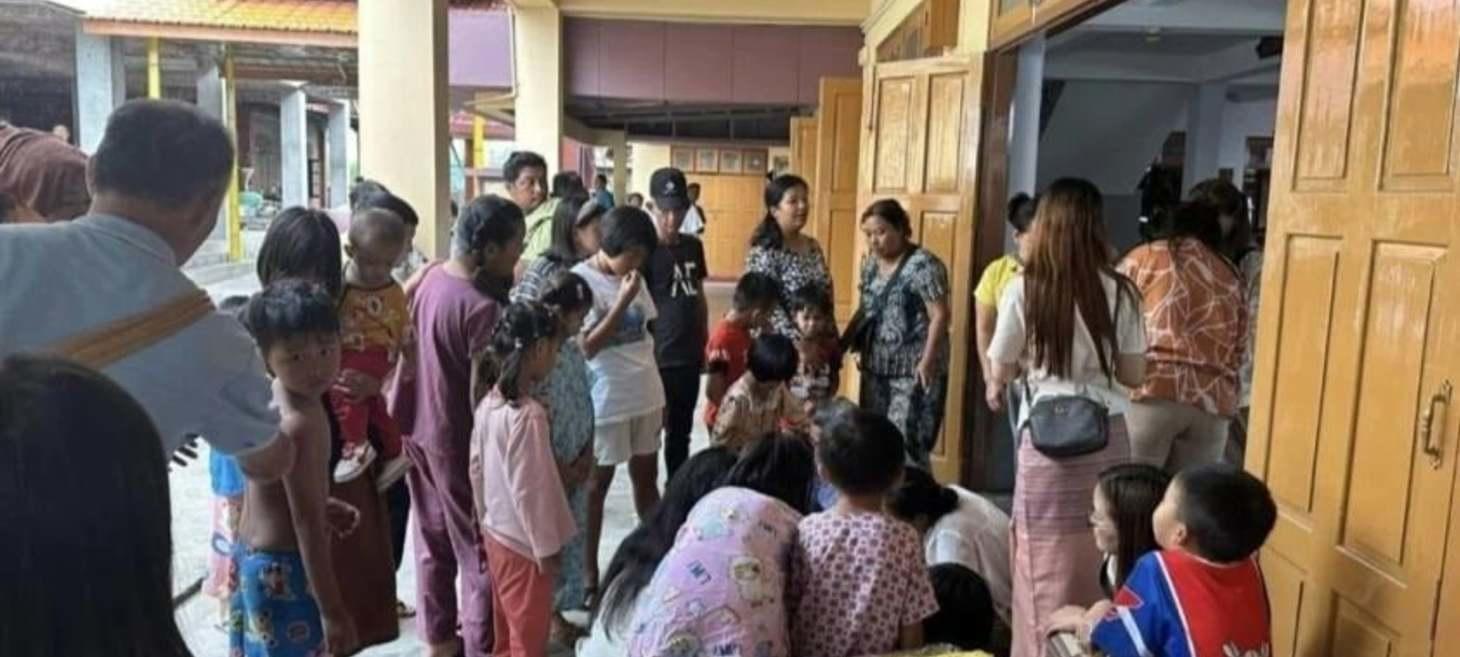
IDPs from Lashio Face Hardships in Taunggyi
Nearly 300 IDPs from Lashio who fled due to the MNDAA's offensive in July 2024 and their subsequent control of the town until a planned handover to the junta by April 21, 2025, are facing economic hardships in Taunggyi. These IDPs, sheltering in monasteries and cultural centers, receive shelter and rice but struggle with other essential needs due to a decrease in donor support. While some Lashio residents have returned, others remain in Taunggyi due to lost homes, trauma, or concerns about an economic downturn and social issues in MNDAA-controlled Lashio. The Shan Herald Agency for News, from which this information originates, also covers a wide range of topics related to Myanmar, including human rights, politics, economics, and ongoing conflicts.
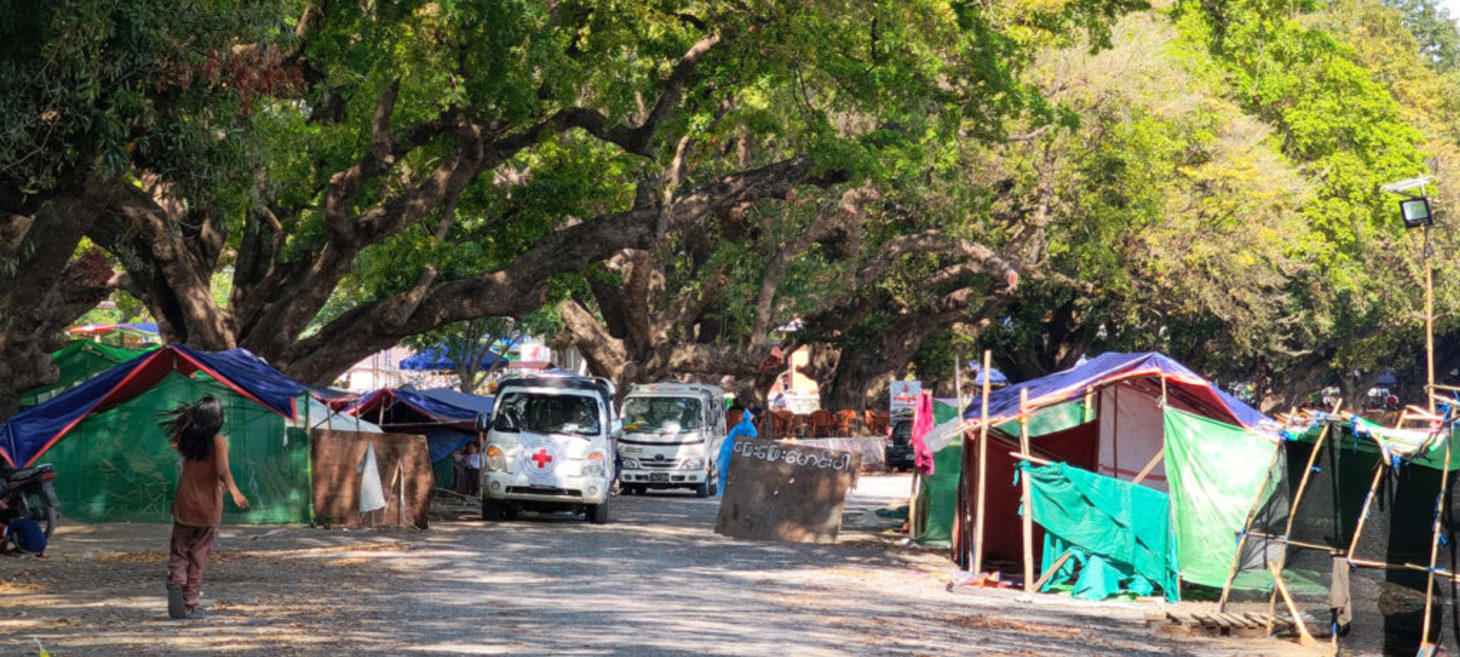
Quarter of a Million Mandalay IDPs Denied Myanmar Junta Quake Aid
A significant earthquake in Mandalay on March 28th has left nearly a quarter of a million internally displaced people (IDPs) who had fled conflict in Shan State and Sagaing Region struggling for food and shelter, as local junta administrators reportedly excluded them from earthquake relief aid. These IDPs, many of whom lost their rented homes and livelihoods due to the quake, are largely dependent on civil society organizations, charities, and individual donors for assistance, receiving minimal to no support from the regime. Relief supplies are often distributed based on household registration certificates, further disadvantaging IDPs. With many residents fearing aftershocks and rescue operations having concluded, the overall situation for quake victims, particularly the displaced, remains dire, despite the considerable destruction across multiple regions including Mandalay.
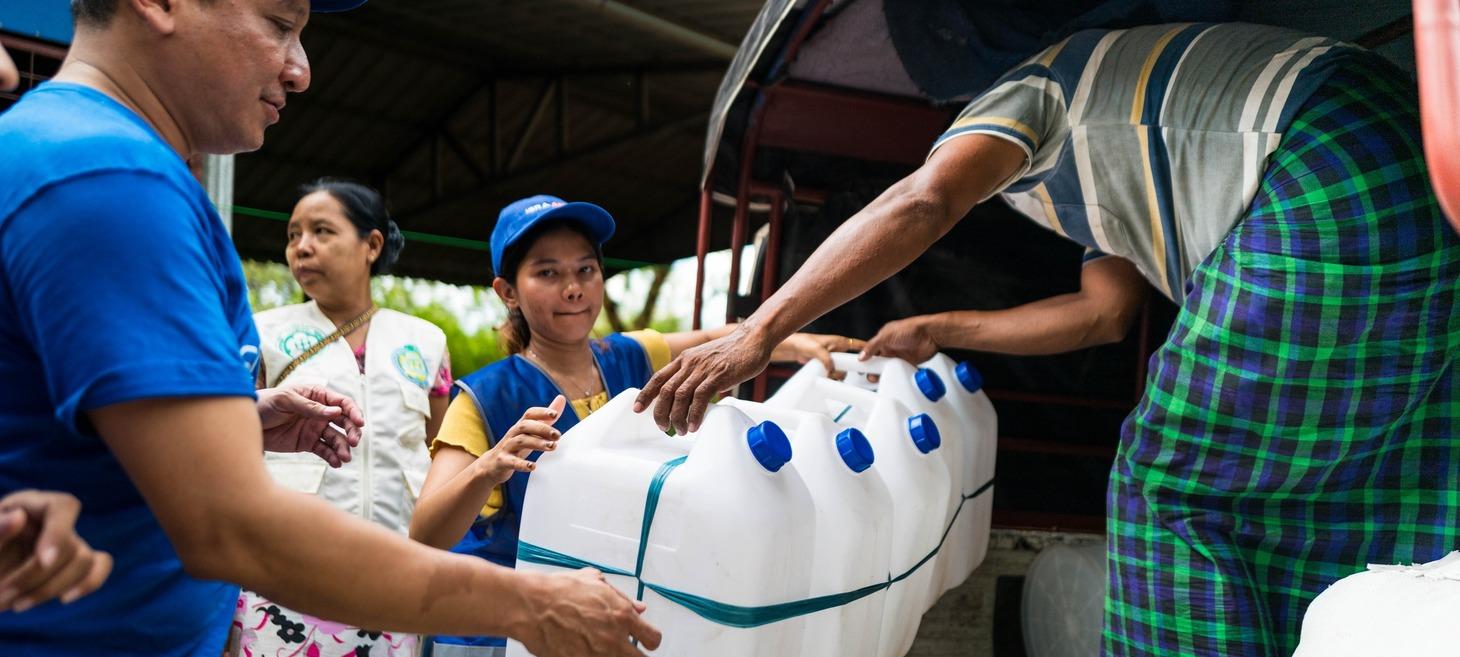
IsraAID supporting safe water and mental health needs after Myanmar quake
Following the devastating earthquakes in central Myanmar on March 28th, including a 7.7-magnitude main shock and numerous aftershocks that resulted in at least 3,700 deaths and 4,800 injuries and disrupted aid efforts, IsraAID, Israel’s leading nongovernmental humanitarian aid organization, deployed an emergency team just days later. Working with local partners, IsraAID conducted an urgent needs assessment and began distributing essential items such as water filters, mosquito nets, jerry cans, hygiene kits, and sanitary pads in Mandalay and surrounding areas. The organization's response team includes experts in emergency response, Water, Sanitation and Hygiene (WASH), Health, and Psychosocial Support (PSS), focusing its ongoing efforts on improving access to safe water, sanitation, and psychosocial support for affected communities, including through borehole repairs and PSS capacity building. IsraAID has extensive global experience in responding to humanitarian crises, including earthquakes.
Natural Disaster
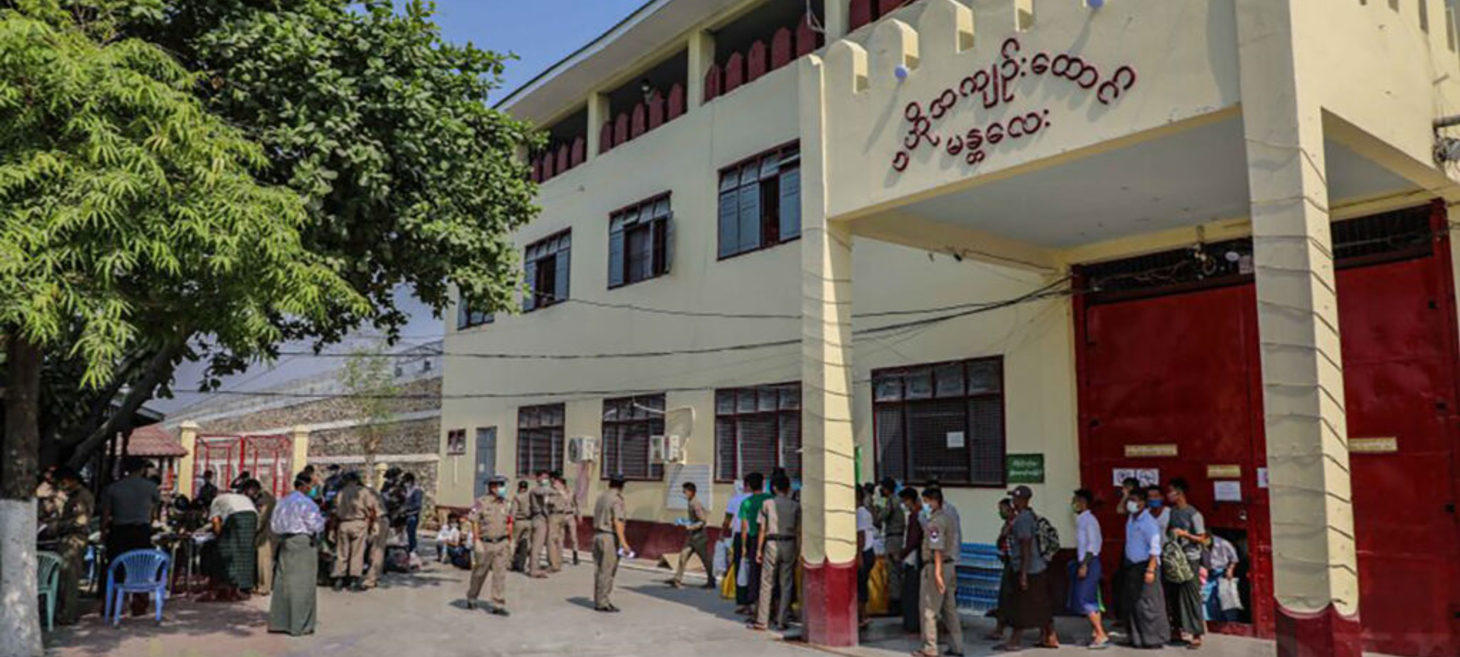
20 Political Prisoners Among Dozens of Inmates Killed by Myanmar Quake, Groups Say
A massive earthquake struck central Myanmar on March 28, resulting in the deaths of 30 prisoners, including 20 political prisoners, and injuring over 280 others. Poorly maintained prison buildings, including two women’s cell blocks, women’s hospital buildings, and a men’s workshop, reportedly collapsed at Obo Prison, the second-largest prison in Myanmar, which holds thousands of prisoners including hundreds of political prisoners. According to seven organizations helping political prisoners, the regime has imposed a news blackout on prisoner casualties at Obo Prison and threatened political prisoners who refuse to stay in damaged buildings with relocation to Tharyarwaddy Prison, potentially making it difficult for relatives to provide necessities. These groups report that political prisoners affected by the earthquake have received no assistance from aid agencies and that injured prisoners have been denied proper treatment inside the prison. The groups have called on international rights groups and the United Nations to pay close attention to the deteriorating conditions of political detainees. The overall death toll from the earthquake was reported by the junta as 3,735 as of Sunday, with 5,108 injured and 120 missing.
Telecommunications
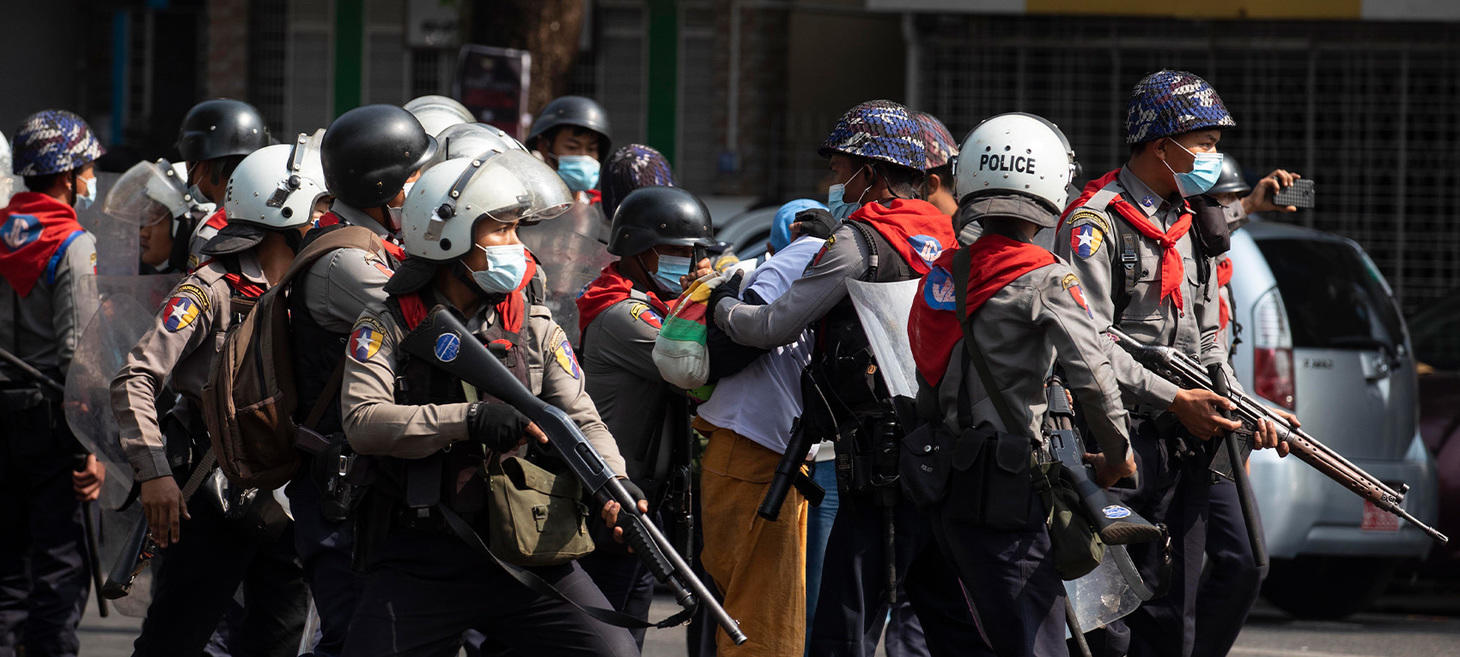
EU Firm Sold Phone-Hacking Software to Myanmar Junta’s Police
Myanmar police are using Czech software that allows them to unlock dissidents’ phones, bypass security protections, and even retrieve deleted messenger data.
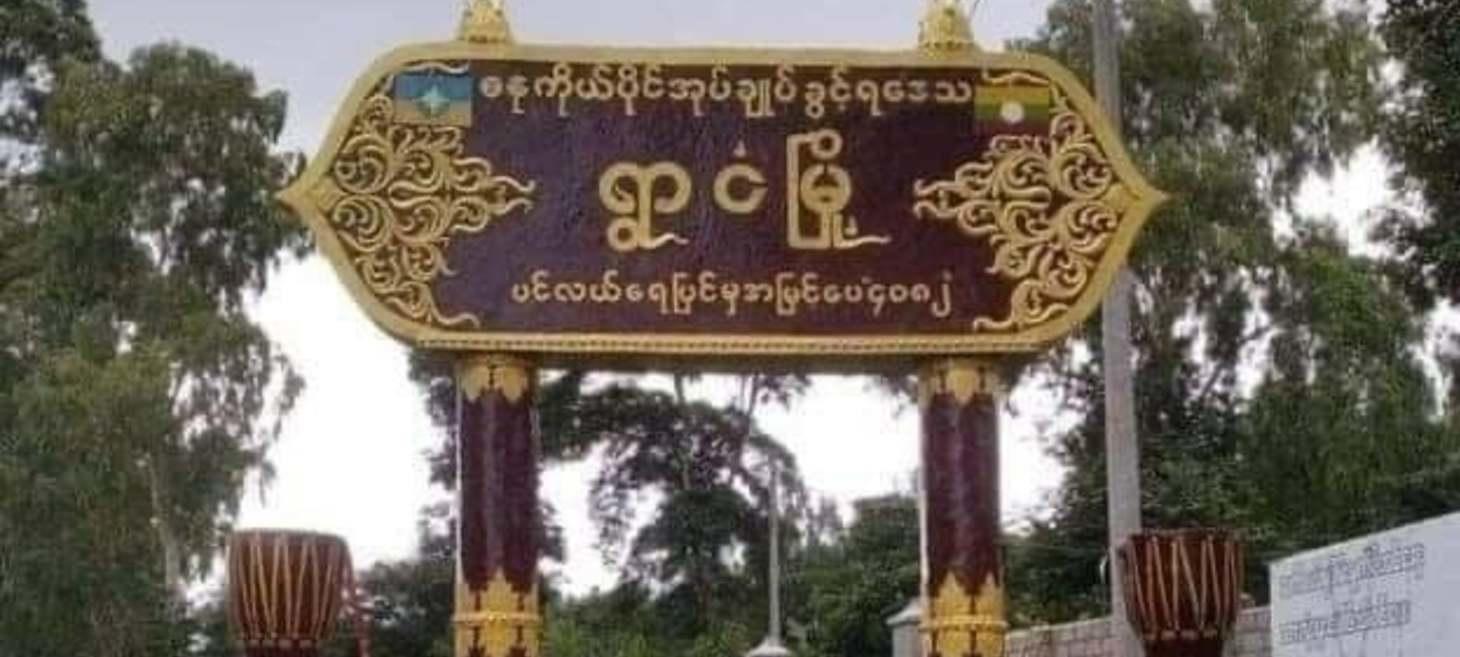
Internet Bans in Ywangan Township Villages - Burma News International
A column of approximately 100 junta soldiers has been operating in the Linway Village Tract of Ywangan Township in southern Shan State since April 15, 2025, moving through villages like Peikin, Thahpanpin, and Kyauktaw. Whenever these soldiers enter a village, they impose bans on mobile internet and phone usage, which are only lifted after the column leaves for another village. Beyond restricting communication, the soldiers also patrol forested areas outside villages, stop tea pickers, frequently fire weapons into dense forests for no clear reason, and forcibly commandeer vehicles from villagers, often abandoning them elsewhere instead of returning them. This increase in the military column's activities in the area followed an incident on April 14, 2025 (or April 12, according to another account), where an unidentified armed group shot and killed three members of the junta-aligned Pyu Saw Htee militia and a grade-8 student in Thahpanpin Village. The sources also note that other junta personnel, including appointed administrators, have been killed in Ywangan Township on previous occasions in late 2024, and that the junta firmly controls the township, having burned down Minpalaung Village in December 2024.